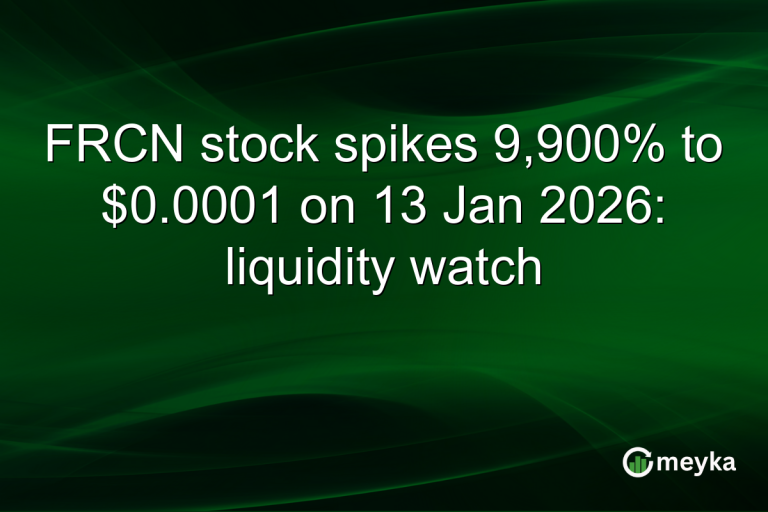Uber to Pour $200 Million Into New Turkey Tech Hub, Government Confirms
We’ve just seen a bold move by Uber Technologies Inc., the company will invest $200 million into a new tech hub in Turkey, according to the country’s Industry and Technology Ministry. This isn’t just another regional office. It signals a clear shift: Uber is aligning its global tech and innovation strategy around Turkey. In a world where ride-hailing and delivery platforms race to stay ahead, we’re watching Uber position Turkey as a key player. The investment points to Turkey’s growing power in tech talent, and Uber’s drive to tap into that potential. As we explore this announcement, we’ll unpack what’s really happening, why it matters, and how both Uber and Turkey could benefit in the years ahead.
Background: Uber’s Growing Global Tech Footprint
Over the past decade, Uber has moved beyond simple ride-hailing. It now builds technology for mapping, logistics, AI, and delivery systems. The company has set up several engineering and innovation hubs around the world to support this effort. For example, earlier Uber had announced a major engineering hub investment in Toronto, Canada. Now, with Turkey in view, Uber sis signaling that emerging-market hubs matter just as much as the traditional Silicon Valley setup.
Why Turkey? Strategic Importance for Uber
Why is Uber choosing Turkey for this large tech investment? There are several clear reasons:
- Vibrant tech ecosystem: Turkey has a youthful, tech-savvy workforce and rapidly growing startups.
- Location advantage: Istanbul sits at the crossroads of Europe and the Middle East, making Turkey a strategic gateway for regional operations.
- Government support: Turkey’s Ministry of Industry & Technology publicly confirmed the investment, showing state-level backing.
- Talent pool: Engineers, developers, researchers, and data scientists in Turkey are increasingly recognized abroad. Uber can tap into this talent for global projects.
- Market growth: Uber has already moved aggressively into Turkey’s markets. Earlier this year, Uber announced it would buy an 85% stake in Turkey’s delivery platform Trendyol Go for $700 million.
All these factors combine to make Turkey a smart investment choice for Uber’s next wave of tech development.
Investment Breakdown: $200 Million Commitment
The announcement is clear: Uber will invest $200 million over five years to establish a software and technology development center in Istanbul. Although Uber has not publicly detailed every line item, we can reasonably infer that the funds will go toward:
- Building facilities (office space, labs)
- Hiring engineers, product managers, and support staff
- Developing core tech platforms (AI, mapping, logistics)
- Regional operations, plus collaboration across Uber’s global hubs
The five-year timeframe gives Uber enough runway to recruit, build systems, and deliver meaningful outcomes. From our point of view, that signals a long-term commitment rather than a short-term experiment.
What the New Uber Tech Hub Will Do
What will this hub actually work on? Here’s what we expect:
- Engineercenterntre: The hub will likely host software engineers, data scientists, and UX designers.
- Core tech development: Focus on AI (such as ride-matching, pricing algorithms), mapping & routing (critical for Uber’s mobility services), and backend infrastructure for delivery & logistics.
- Regional product support: Serving the Europe, the Middle East, and North Africa (EMEA) region from Turkey.
- Innovation for mobility & beyond: Uber is no longer just a ride-hailing company. It now works in delivery, freight, and mobility technologies. The hub will support these lines.
In sh, rt: this is about building the “brain” behind Uber’s operations in a key global region.
Economic Impact on Turkey
This investment could boost Turkey’s economy and tech sector in multiple ways:
- Job creation: Hundreds of direct jobs may open for engineers, support staff, and managers.
- Upskilling workforce: Local talent will gain experience in global-class technology projects, which raises the skill level of the ecosystem.
- Startup partnerships: Uber may partner with Turkish startups, universities, a nd research institutes, thereby strengthening the linkage between global corporations and local innovation.
- Global recognition: When a major player like Uber chooses Turkey, it sends a message: the country is tech-ready. That can attract other investors.
From our standpoint, this is a win-win: Uber gets a strategic base; Turkey deepens its tech infrastructure and global role.
Impact on Uber’s Global Business
What does this move mean for Uber itself?
- Stronger long-term tech foundation: By spreading its engineering footprint, Uber gains resilience, new talent pipelines, and regional relevance.
- Faster product innovation: With regional hubs, Uber caiterate onte pproductscloser to diverse markets and reduce time-to-market.
- Competitive edge: In regions like EMEA, Uber competes with rivals such as Bolt, Careem, and local players. Tech-leadership and cost efficiencies matter.
- New verticals: With a tech hub aligned to logistics and delivery, Uber is better placed to grow its non-ride businesses (e.g., Uber Eats, freight).
In effect, this move is not just about Turkey; it’s about building Uber’s global future.
Regulatory & Market Context
It’s worth noting the backdrop. In earlier years, Uber’s presence in Turkey faced regulatory pushback. For example, in 2018, Turkish leadership said Uber’s business was “finished” in Turkey amid taxi-sector friction.
Today, the climate looks different: the government is publicly supporting Uber’s tech investment. The shift suggests Turkey is more open to ride-hailing, tectech-investmentsand digital innovation.
We see this as part of a broader trend: governments in emerging markets now embrace mobility tech and digital platforms, rather than simply resisting them.
Challenges & Risks
Of course, no investment move is without risk. For Uber and Turkey, some key challenges include:
- Economic volatility: Turkey has dealt with currency and inflation risk. A tech investment depends oa n on a stable business environment.
- Competition: Local and regional players know the market and can move fast. Uber must deliver value, not just capital.
- Talent retention: Hiring is one thing; keeping top engineers is another. Globally, tech hubs fight for talent.
- Execution risk: A five-year time horizon means many things can change, market conditions, technology direction, and regulatory shifts.
As we consider the move, we keep in mind that strong intent must be matched by strong execution.
Conclusion
To summarise: Uber’s decision to invest $200 million in a Turkey-based tech hub is bold, smart,and timely. It reflects the company’s recognition of emerging markets, global talent, and the need for innovation hubs beyond the U.S. At the same time, Turkey stands to gain jobs, skills, and global tech status.
We’re watching a shift not just in ride-hailing, but in how global tech companies build their future. This move by Uber sends a clear message: the real competition today is about where and how you build technology, and Turkey is now firmly on that map.
Disclaimer:
The content shared by Meyka AI PTY LTD is solely for research and informational purposes. Meyka is not a financial advisory service, and the information provided should not be considered investment or trading advice.






